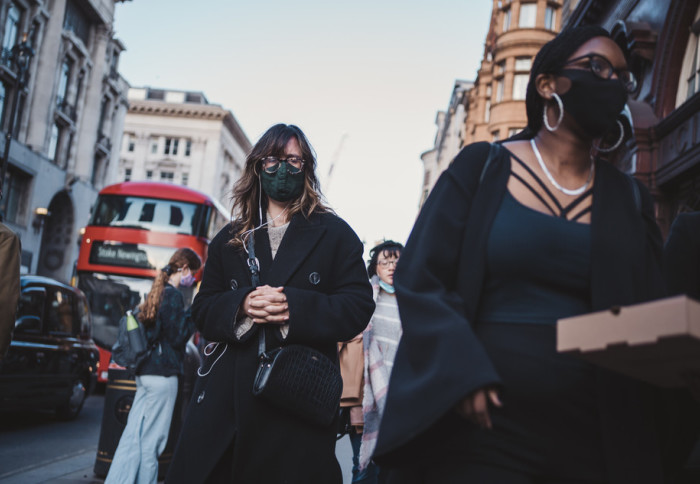
Global S&T Development Trend Analysis Platform of Resources and Environment
| Long-term air pollution linked to greater risk of COVID-19 hospitalisation | |
| admin | |
| 2021-09-06 | |
| 发布年 | 2021 |
| 语种 | 英语 |
| 国家 | 英国 |
| 领域 | 资源环境 |
| 正文(英文) | 

A new report finds a link between long-term exposure to air pollution and the severity with which a person will experience the effects of COVID-19. Air pollution has harmful effects on the lungs. When COVID-19, a disease which infects the airways of the lungs, became a global pandemic it raised the question - does air pollution increase the chance of catching COVID-19 or worsen health outcomes if you do contract it? The new report, led by School of Public Health's Environmental Research Group and commissioned by the Mayor of London via Imperial Projects, provides a comprehensive overview of the best recent evidence and finds a link between toxic air and more severe cases of COVID-19. The review, carried out with the University of Cambridge MRC Toxicology Unit, found that long-term exposure to air pollution before the pandemic increased the risk of hospitalisation in people already infected with COVID-19 in a small number of good-quality studies. This may be due to the already well-established link between air pollution and lung and heart disease, which are known to make people more vulnerable to adverse outcomes from COVID-19. Inconsistent results were found for studies of long-term exposure to air pollution and the number of COVID-19 cases. Air pollution and COVID-19There is evidence that exposure to air pollution might increase the likelihood of contracting COVID-19 if you are exposed to the coronavirus. This comes from a few studies that found, once inhaled into the lungs of animals, pollutants increase amounts of the protein that allows the coronavirus to attach to the lung cells. However, human population studies of air pollution and new cases were poor quality and inconclusive. This review shows that there is some increasing evidence of links between exposure to air pollution and susceptibility to hospital admissions from COVID-19 and, whilst this study highlights that more research is needed in this area, it is already clear that tackling air pollution is important in reducing the vulnerability of the population to COVID-19, and other infections like it. Historically, air pollution has been most associated with “non-communicable” diseases that can't be directly transmitted between people. For example, there is extensive and growing evidence on the impact of air pollution on heart and lung diseases. Until now, the role air pollution plays in infectious respiratory diseases has been overlooked and underestimated in the UK. The report contains a review of studies of air pollution and lower respiratory infections since 2011. Several studies found a link. although the studies were spread across different age groups and disease definitions. This provides some plausibility for a link between air pollution and COVID-19 infection. A review of existing studiesDr Heather Walton, lead author of the report, said: “Early in the pandemic, many studies of air pollution and COVID-19 were poor quality because it takes time to do more careful studies. Our report reviews all studies on air pollution and COVID-19 since November 2020 and now finds a small number of good quality studies showing a link between long-term exposure to air pollution and hospital admissions from COVID-19. This is plausible since we know that air pollution contributes to heart and lung disease and we also know that people with heart and lung disease are more vulnerable to hospital admissions from COVID-19. “Whether air pollution makes it more likely that people will get infected by the coronavirus is unclear – the human population studies are poor quality. Early studies suggesting particulate air pollution might ‘carry’ the virus longer distances have not been confirmed by later studies. However, studies in animals have shown an increase in the protein the virus uses to attach to lung cells, which provides a possible mechanism for increasing viral infection. This is not fully established and needs further research. “Research in any area builds up over time, and, as the SARS CoV2 virus is new and incompletely understood, we will need to continue to assess new studies on air pollution and COVID-19 as they are published and understanding continues to evolve.” Tackling air pollution in LondonTransport for London (TfL) and the Greater London Authority (GLA) commissioned researchers from the Environment Research Group (ERG) at Imperial College London to investigate the links between air pollution, COVID-19 and other infectious diseases. The Mayor of London, Sadiq Khan, said: “We already know that air pollution is linked to life-changing illnesses, such as cancer, lung disease and asthma. But until now previous studies have underestimated the role air pollution plays in infectious diseases like pneumonia, bronchitis and most recently COVID-19. “This new review from Imperial makes it crystal clear that tackling air pollution is a vital part of building our resilience to COVID-19, and other infections like it. The decisions we make now to tackle air pollution are truly a matter of life and death." Download the full report: Investigating links between air pollution, COVID-19 and lower respiratory infectious diseases |
| URL | 查看原文 |
| 来源平台 | Imperial College London |
| 文献类型 | 新闻 |
| 条目标识符 | http://119.78.100.173/C666/handle/2XK7JSWQ/337491 |
| 专题 | 资源环境科学 |
| 推荐引用方式 GB/T 7714 | admin. Long-term air pollution linked to greater risk of COVID-19 hospitalisation . 2021. |
| 条目包含的文件 | 条目无相关文件。 | |||||
| 个性服务 |
| 推荐该条目 |
| 保存到收藏夹 |
| 查看访问统计 |
| 导出为Endnote文件 |
| 谷歌学术 |
| 谷歌学术中相似的文章 |
| [admin]的文章 |
| 百度学术 |
| 百度学术中相似的文章 |
| [admin]的文章 |
| 必应学术 |
| 必应学术中相似的文章 |
| [admin]的文章 |
| 相关权益政策 |
| 暂无数据 |
| 收藏/分享 |
除非特别说明,本系统中所有内容都受版权保护,并保留所有权利。
修改评论